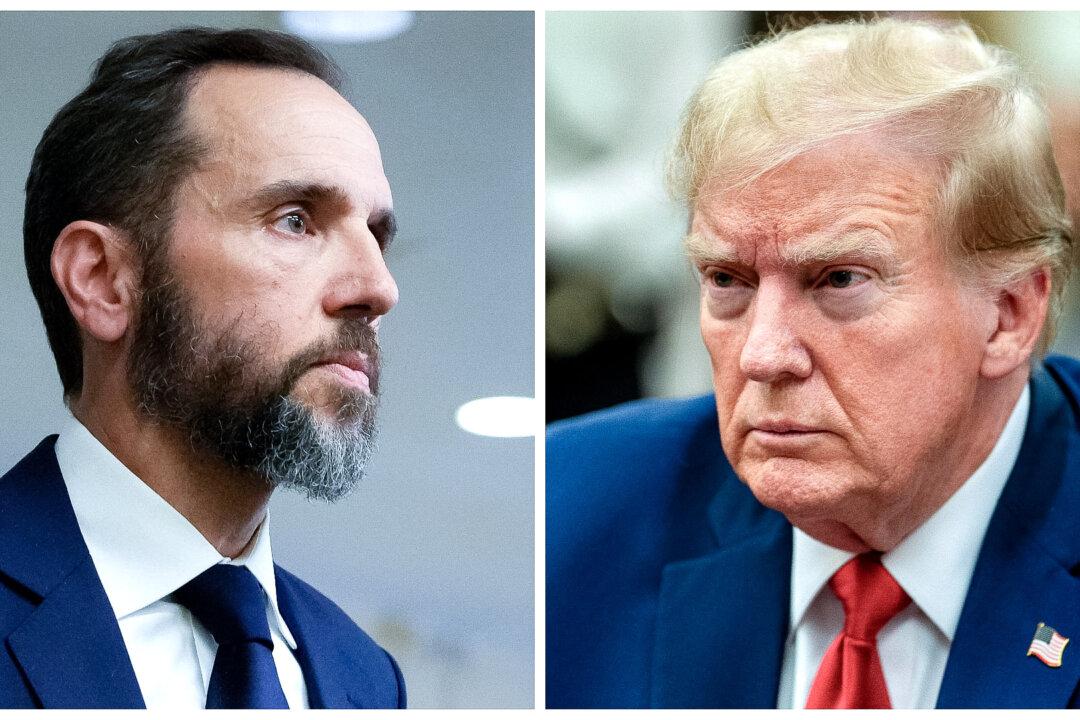Special counsel Jack Smith on Friday filed more evidence, in secret and under seal, without the presence or notification of former President Donald Trump’s attorneys, a practice that the former president’s lawyers have said infringe on their client’s right to open proceedings.
In a Feb. 23 notice of filing at the U.S. District Court, Southern District of Florida, Mr. Smith’s team indicated that they have filed documents related to an order pursuant to CIPA Section 4 rules, delivering them to a classified information security officer in Fort Pierce, Florida.





